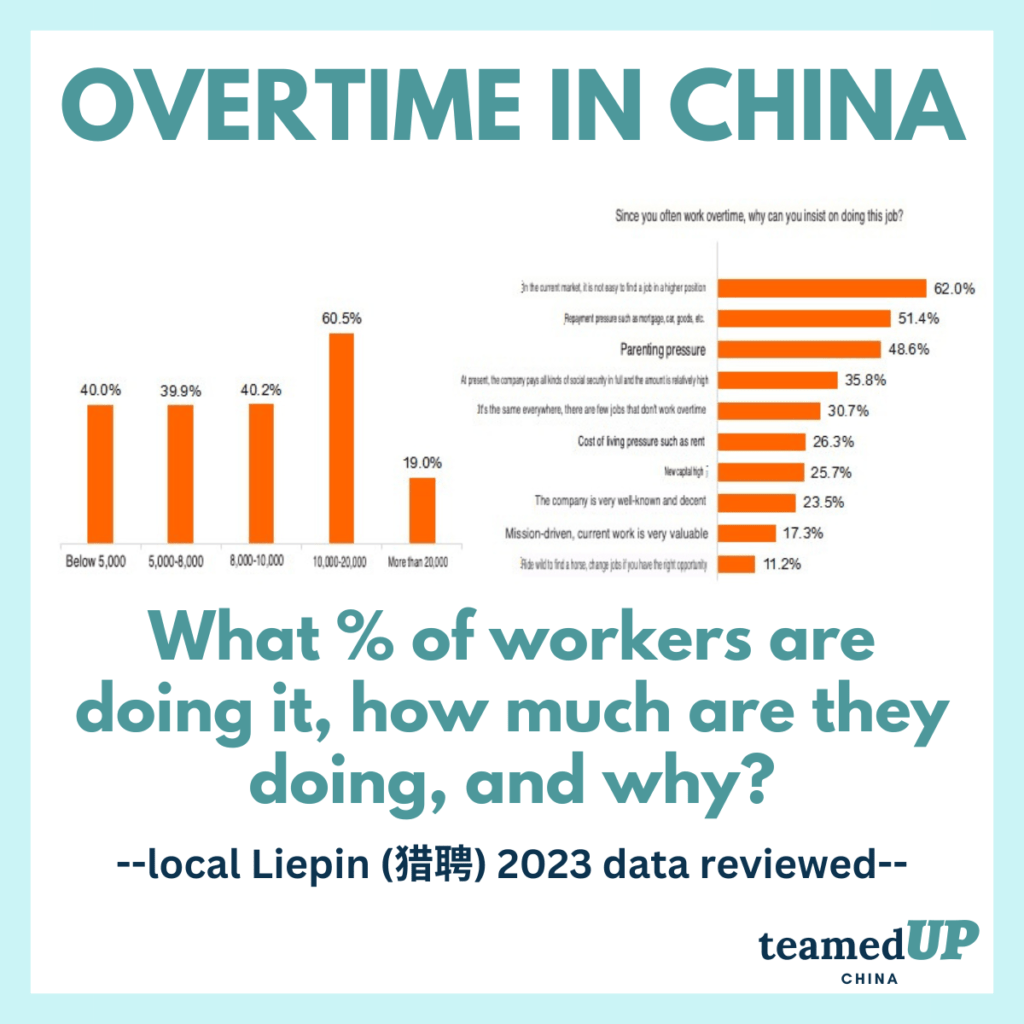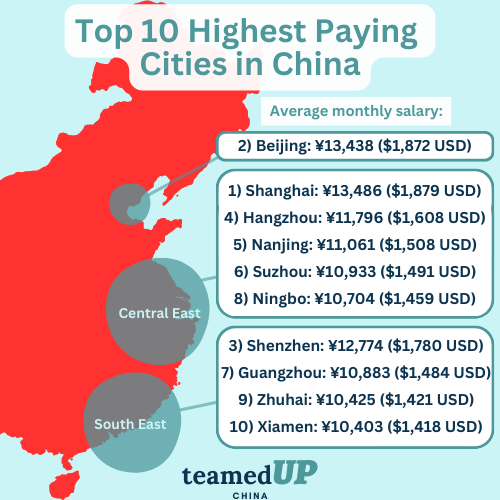Here’s What Chinese Professionals Are Looking For In Their Next Job
One of China’s biggest job portals, Liepin (猎聘), recently released a report on ‘Talent Flow and Salary Trend Report for the First Half of 2023’. For reference, the original Chinese name of the report is ‘2023上半年人才流动与薪酬趋势报告’. One interesting section of the report revolves around worker values and preferences. Liepin’s report aimed to shed some light on what kind of companies they want to work for in 2023, and what they value most in employment. For convenience, I’ve run the original data through a translator and posted both the original and English versions here. Let’s take a look and see what Chinese professionals really want in their next role! Stability is the #1 Value for Chinese Employees in 2023 Participants were asked: Among the following occupational attributes and characteristics, what has the greatest impact on your choice of occupation? Perhaps it’s not too surprising, after years of a global pandemic and an array of economic uncertainties, that Chinese workers value Stability above all else in 2023. Here are the job attributes from greatest to least impact, according to respondents: 1. Stability 2. Interest in the professional & technical attributes 3. Potential for growth 4. Autonomy & flexibility 5. Creative attributes 6. Financial incentives/value 7. Identity & respect 8. Management attributes State-owned and Gov’t Agencies out front of Foreign companies & Joint-Ventures Liepin also asked participants an interesting related question: What type of companies do you prefer to look for in your job search? The resounding leader here was State Owned Enterprises, with 71.7% choosing the option. Government Agencies and Institutions came in next at 42.0%. With such a high value on job stability, State-owned and Government outfits make sense as long-term, sturdy, and steady paths. Third place in the survey, with 41.5%, was Foreign Owned-Enterprises. This is just under Government Agencies and far below State Owned Enterprises. It’s important for foreign companies to understand and strategize hiring around this point: Foreign companies are (generally) not the #1 choice for Chinese workers. In order to stay competitive in the Chinese job market, foreign employers should consider what values they provide to workers that can out-compete those of state-owned & government entities. A great place to start is the survey result from earlier in this article: Stability, Personal growth potential, Autonomy/flexibility, Creative outlets, and (of course!) Financial incentives are all ways to attract top talent. Oh and easy + related tip: Don’t require a cover letter in China. Rounding out the survey results were Private Chinese Companies (37.9%), Joint Ventures (34.8%), and Non-profits (only 3.6%!). Hiring in China? We can help, and stay within your budget! We’ve been recruiting in China since 2014! Our China Recruiter Pro service helps companies utilize leading Chinese platforms just like Liepin. Contact us for a free consultation to discuss hiring goals, salary & compensation budgets in China, and if TeamedUp China is the right fit to support your organization. Book A Call Get in Touch Let’s find your next great China-based team member today.
Here’s What Chinese Professionals Are Looking For In Their Next Job Read More »



